Ascension marks Syfy’s continued focus on returning to its sci-fi roots
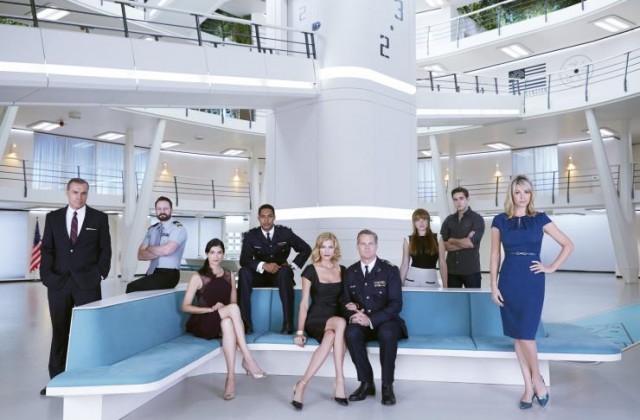
‘Ascension’ is a piece of bold, genre-based storytelling that we have seen very little of on Syfy in the past couple of years. If it succeeds this week, the story will find place on the network’s schedule and help solidify Syfy’s focus on science fiction.
Slowly but surely, things are starting to change at Syfy. The network that once eschewed its roots in science-fiction programming in a move to grab ratings – and admittedly stability – is finally coming back around. Gone are the days when there was more wrestling than shows like Stargate: Universe (admittedly the WWE still has a place on the network, but sci-fi fans will take their gains where they can). Continuum and Defiance begat Dominion and Helix which are shepherding in 12 Monkeys and The Expanse (!!!). Depending on your opinion of the Sharknado franchise, Syfy has done a solid job at creating event television; Ascension, a mini-series premiering this week, hopes to continue that tradition.
Syfy President Dave Howe told The Hollywood Reporter earlier this week that they don’t invest in miniseries programs without the potential backdoor for a series run, and what I’ve seen of Ascension thus far (the network has released the first two hours out of the six total), that is a really good thing. At San Diego Comic-Con earlier this year, I had the opportunity to sit down with the show’s creator Phillip Levens and members of the cast: Brian Van Holt (Ascension’s captain William Denninger), Tricia Helfer (Denninger’s wife Viondra), Andrea Roth (Doctor Juliet Bryce) and Al Sapienza (Councilman Rose). Between those conversations, and viewing the first two hours, this is what we’ve learned:
The Ascension and its crew are a product of their time
The ship was launched in secret in 1963, on a course for the Proxima System. The mission was intended as a post-Cuban Missile Crisis lifeboat for humanity: a 100-year journey to establish a colony that can avoid the threat of the world’s destruction in a nuclear war.
Levens quotes a line from the script that talks about how technology might have developed separately from “our” timeline, “If you take 600 of the best and the brightest and put them in a tin-can for 50 years, you’d be amazed with the things they’ll come up with.” But the culture on the ship maintains a distinctly 1960’s personality, most specifically evident in the way gender relationships have developed (or more-specifically haven’t) since the mission began.
The crew isn’t able to communicate with Earth; the challenges of time and space (and the plot convenience of their engine-technology’s interference) prevent it. They aren’t even aware if the planet survived the Cold War; but the story spends enough time on present day Earth to confirm that we all still exist in this universe. At home, the existence of the ship and its mission is fodder for conspiracy theorists.
There are many characters that question the mission
We find the Ascension as it approaches its metaphorical Rubicon, the point at which the ship’s resources wouldn’t allow for changing course and returning home. Fifty years into its journey, none of the crew is there by choice. Their parents and grandparents, in effect, made that decision for them. Some are beginning to doubt the mission, “Some people [think] maybe their grandparents made a mistake, maybe they were conned by the government,” Levens explains, “Maybe they bought into something that wasn’t real.”
In closed society, segmented classes are unavoidable
Inevitably, one of the themes of the story looks at the distinction between the ship’s leaders and the manual laborers. Denninger’s second in command, Oren Gault, is promoted from the lower decks. Instead of being the example that the society can rise above its stratification, seemingly everyone on the ship not named Oren Gault sees his position as a move to mollify those lower-level folks that want to do more than tend to the livestock.
Dr. Bryce expects her daughter Nora to follow in her footsteps and becomes the ship’s physician. The events of the first episode (a murder on board is the series’ inciting incident) change her motivations
There is 5-6 seasons worth of story to tell if audiences respond
Ascension is just six hours for now, but Levens and the team already have multiple seasons worth of story if audiences and the network respond favorably. “It was always designed to have a much larger, five or six year arc. It has lots of surprises … it’s not what you expect.”
Love triangles, relationships and threesomes, oh my!
Ascension isn’t family viewing – at least not in my family. The ship’s interpersonal relationships are a mess. While a computer chooses mates based on optimal genetic conditions (a death has to occur before a life is allowed to be conceived), the characters sure do get around. Helfer adds, “In Viondra’s case it’s not so much about desire, it’s much more about power.” Her relationship with her husband is one of love, but is as much a partnership invested in maintaining the power the captain’s position includes.
Ascension is in for a bumpy ride
Things aren’t going to be easy for the crew — admittedly, that would make for a crappy narrative. From the murder that kicks the story off, to the growing friction between the classes (informed by the desire of some — if not many — to turn the ship around and head home) to the mysterious entity that seems to haunt one of the crew’s children, a thread of danger weaves its way throughout the ship. Monday’s installment presents interesting questions about the motivations of the crew and the many secrets they keep from each other. Some of those questions are likely to be answered on nights two and three, but I hope the story will get a chance to develop beyond what we see this week.
 CliqueClack
CliqueClack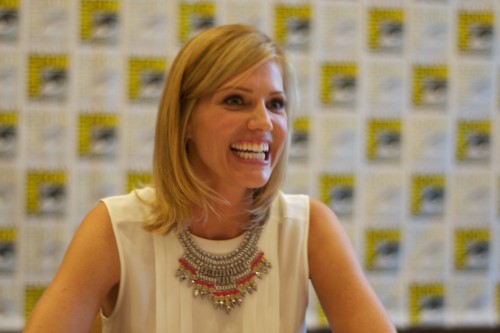
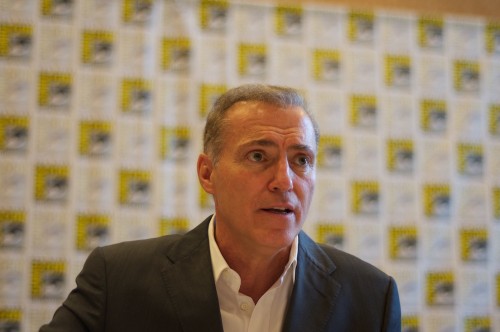
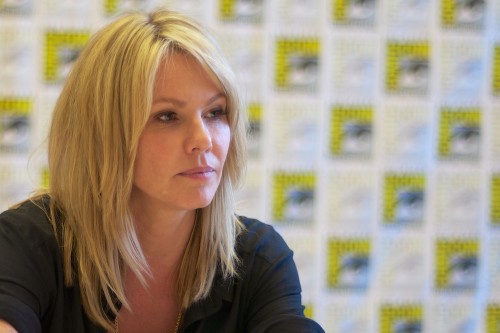
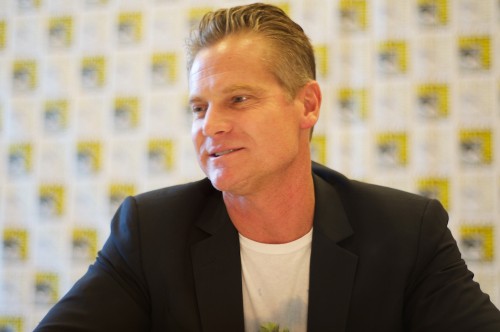

I can’t wait for this to begin tonight!
This has been a great show to watch. I do hope you decide to make a series out of it, Thanks for the great work.
I absolutely loved it I hope It’s here to stay
So many different directions this show could
Go
Given that the actors are immediately recognizable from other shows, I’m already not interested in the series. I like to get immersed in a story and seeing a face that triggers other stories limits that. Recycling actors over multiple series seems to be a trend. One that doesn’t help with the suspension of disbelief that I see as integral to sci-fi.